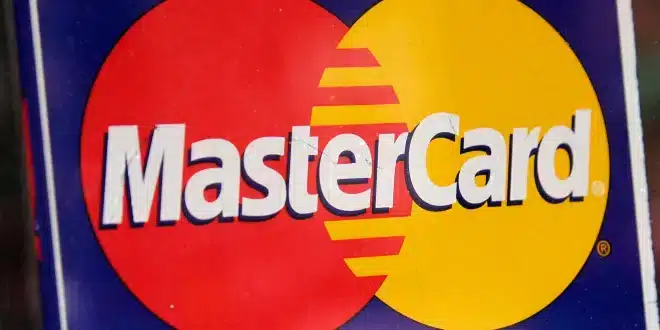Mastercard announced on Wednesday that it expects to identify compromised credit or debit card numbers much earlier than before, thanks to its latest software update incorporating artificial intelligence (AI). This new technology aims to detect patterns in stolen card data more swiftly, allowing banks to replace compromised cards before they are misused by criminals.
Johan Gerber, Executive Vice President of Security and Cyber Innovation at Mastercard, explained in an interview that generative AI will help pinpoint where credentials may have been compromised and quickly address the issue for affected customers, including those who are unaware of the compromise.
Based in Purchase, New York, Mastercard stated that the new update will leverage additional patterns and contextual information, such as geographic location, time, and addresses. This will allow the company to combine incomplete but compromised credit card numbers from various databases to notify cardholders sooner and issue replacements for compromised cards.
This enhanced pattern recognition technology will also enable Mastercard to identify potentially compromised merchants or payment processors by analyzing batches of compromised cards. This method surpasses the capabilities of traditional database inquiries or other standard techniques, according to Gerber.
There are billions of stolen credit and debit card numbers available on the dark web for purchase by criminals. Most of these numbers were obtained from merchant data breaches over the years, but many were also stolen from consumers who used their cards at compromised gas stations, ATMs, or online merchants.
These compromised cards often remain undetected for extended periods. Typically, payment networks discover compromised cards either by actively searching the dark web for stolen numbers, by merchants reporting breaches, or by observing fraudulent card usage. However, with this new AI technology, Mastercard can proactively notify banks to replace compromised cards, minimizing disruption for cardholders.
Payment networks are striving to move away from static credit or debit card numbers—those universally used across all merchants—and towards unique numbers for specific transactions. However, this transition, especially in the U.S., may take years due to slower adoption of new payment technologies.
Currently, over 90% of in-person transactions worldwide use chip cards, but in the U.S., the figure is closer to 70%, as reported by EMVCo, the organization behind the chip technology in cards.
Mastercard’s update coincides with efforts by its major competitor, Visa Inc., to innovate credit and debit card usage. Last week, Visa announced significant changes to how cards will function in the U.S., aiming to reduce the reliance on physical cards and the 16-digit card numbers printed on them, making these numbers increasingly less relevant.


